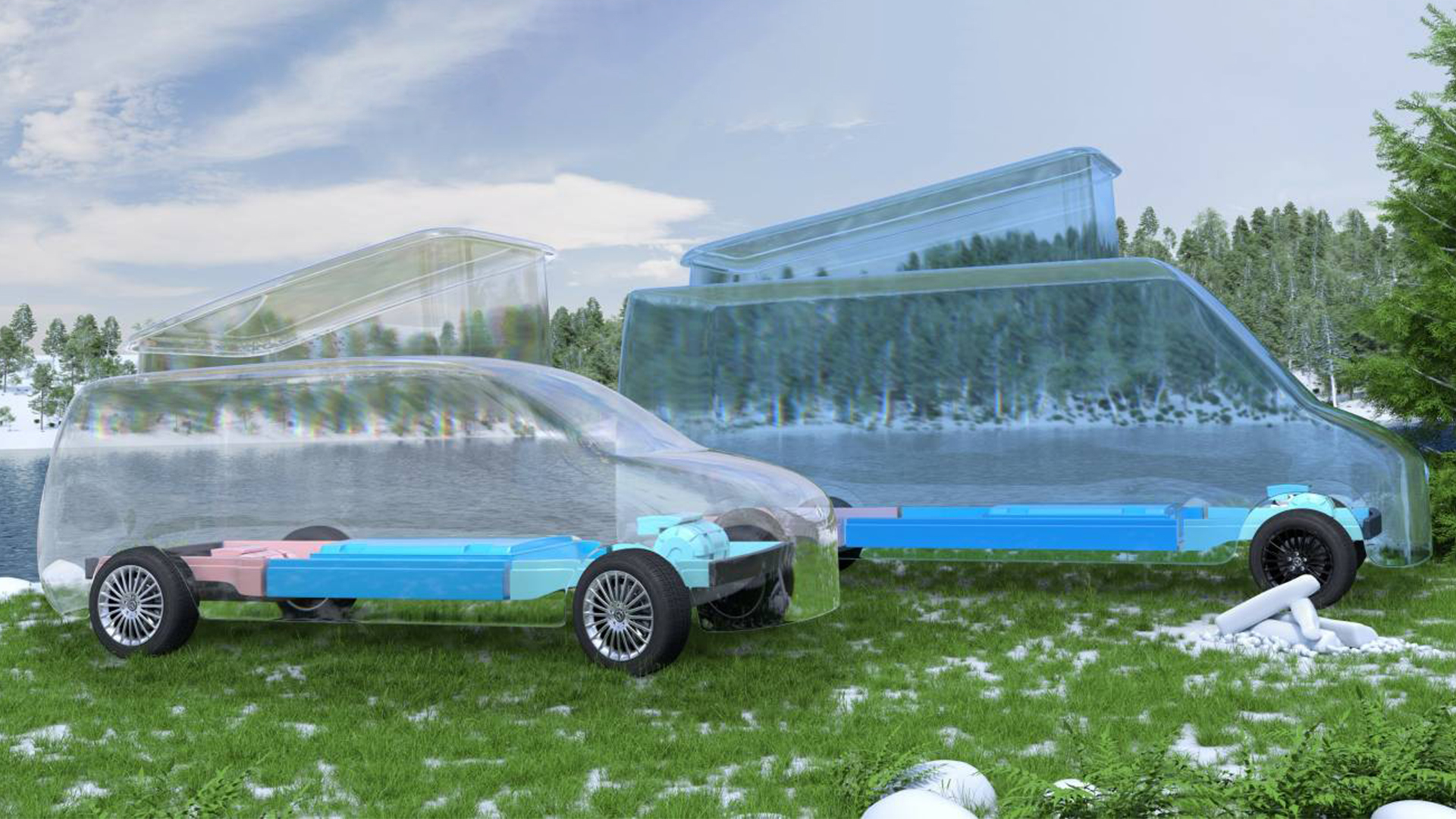

Automakers aren’t shy about their intentions of making the streets hum with electric vehicles. Cars, crossovers, and pickup trucks quickly take center stage as battery power becomes more popular. Well, you can now add “vans” to that list too, thanks to Mercedes-Benz.
On Tuesday, Mercedes-Benz revealed that it would use its new next-generation architecture for vans—conveniently called VAN.EA—to bring electrified passenger vans to U.S. soil. And it doesn’t stop there because this architecture will also lead to new factory-built electrified Recreational Vehicles by Mercedes.

For the first time, Mercedes-Benz will sell an electrified luxury passenger van in the U.S. The new van will be built on the automaker’s new purpose-built VAN.EA architecture that will underpin all of the automaker’s newly-developed midsized and large vans from 2026 onward.
VAN.EA is a modular architecture comprised of three separate “blocks” which make up the entire vehicle. The front block is consistent across all vehicles built on the platform and contains the powertrain and front axle. The center block is solely responsible for the vehicle length and is where the vehicle’s high-voltage battery pack is stored. Finally, the rear block is available with a powertrain (making the vehicle all-wheel-drive) or without for front-wheel-drive-only applications.
Mercedes goes on to create two sub-platforms: VAN.EA-C and VAN.EA-P, with the “C” meaning “Commercial” and “P” meaning “Private.” Essentially, all privately-positioned luxury vans will fall under the VAN.EA-P categorization and are intended to be used by lifestyle-oriented customers, for mobile offices, or as even VIP shuttles. The automaker says it plans for vehicles built on this platform to have “well over” 310 miles of range, though it doesn’t specify the test cycle used for this measurement.
In addition to these luxury passenger vans, Mercedes-Benz will also tailor its platform to accommodate electrified factory-built Recreational Vehicles under the VAN.EA-C branding. Mercedes didn’t go as far as to confirm that factory-built RVs would be an option for the U.S., but it might be worth keeping your fingers crossed for a camper option, especially since Volkswagen’s R&D chief Kai Gruenitz confirmed a camper version of the ID Buzz. Commercial customers can also expect to use the platform for parcel delivery, ambulances, or grocery delivery vehicles.

Now, don’t get it twisted—this isn’t the same deal that Mercedes worked up with Rivian last year. VAN.EA is a Mercedes platform through and through. In fact, neither the large or midsize vans will be built at the shared facility in Jawor, Poland. Instead, large vans will be built in Düsseldorf, Germany, while midsize will be built in Vitoria, Spain. Mercedes-Benz’s Sprinter plant in Ludwigsfelde, Germany, will also become a “competence center” for electric van customization.
Scaling its electric vehicle program with battery-powered vans in the U.S. enables the automaker to reach its 50% EV sales goal by the top of the decade. Moreover, Mercedes says it plans to offer Level 4 automated driving by 2030 in its vans, which may open an entirely new business sector for the manufacturer and its customers.
Got a tip or question for the author? Contact them directly: rob@thedrive.com